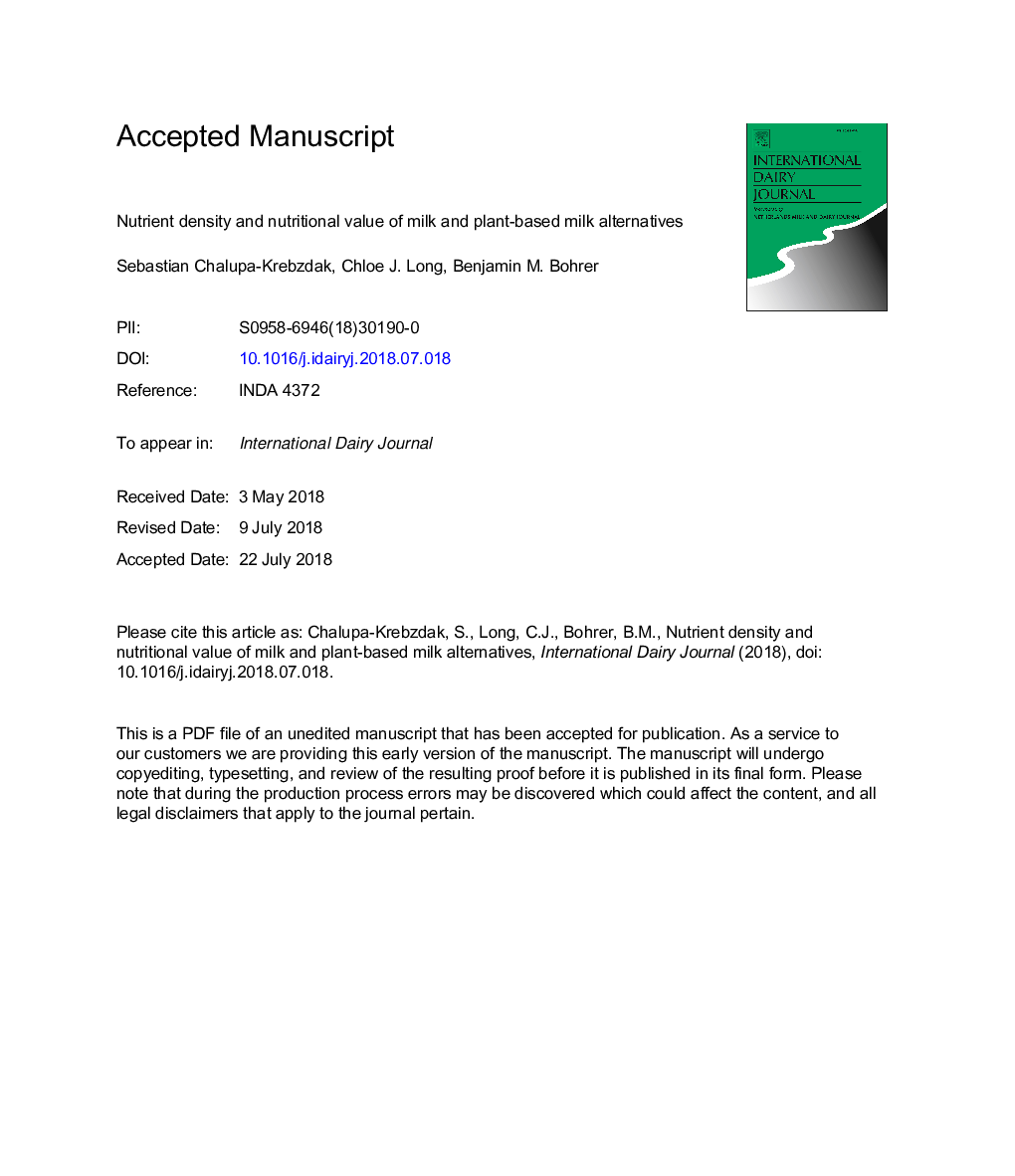| Article ID | Journal | Published Year | Pages | File Type |
|---|---|---|---|---|
| 9954633 | International Dairy Journal | 2018 | 39 Pages |
Abstract
Recently, there has been an expansion of milk alternative beverages originating from plant-based sources including soy, oat, hemp, coconut, rice, and nuts, referred to as milk. This review is focused on comparing nutrient composition of milk and plant-based milk alternatives, as well as discussing considerations relevant to consumption of plant-based milk alternatives. Milk (skim, 1%, 2%, and whole bovine milk) and seventeen plant-based milk alternatives were compared for macro-nutrient composition and calcium to determine if plant-based milk alternatives could replicate the dietary role of bovine milk. Plant-based milk alternatives often present inferior nutritional substitutes of bovine milk. The protein content of the plant-based milk alternatives reviewed ranged from 5 to 100% (48% when averaged) of the protein content of whole bovine milk. Other considerations beyond protein content also warrant investigation as level of vitamins and minerals (and their absorption) tend to be less consistent with plant-based milk alternatives.
Related Topics
Life Sciences
Agricultural and Biological Sciences
Food Science
Authors
Sebastian Chalupa-Krebzdak, Chloe J. Long, Benjamin M. Bohrer,
